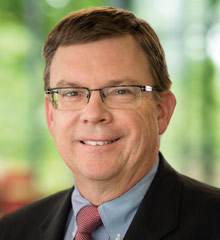This coming Reformation Day, October 31, 2016, is different from many others. On this day, we launch into the 500th Anniversary of the Reformation culminating on October 31, 2017, when we usher in the next 500 years of reformation!
On October 31, 2016, the Reformation will be commemorated in a special way. In the Cathedral of Lund (Sweden) and in the Malmö Arena, the Lutheran World Federation (LWF) and the Roman Catholic Church will commemorate the Reformation together, giving thanks for the gifts of the Reformation, repenting of the division and violence of past generations (and that we have perpetuated in many different ways), and committing ourselves to joint witness to Jesus Christ and service to the neighbor.
Lutherans from around the globe will gather along with the LWF President Bishop Munib Younan (Bishop of Jordan and the Holy Land) and LWF General Secretary Martin Junge. They will be joined by Pope Francis and many representatives of the Catholic Church worldwide. The Common Prayer in the Cathedral will be livestreamed and broadcast throughout the world.
It is a unique time to commemorate the Reformation. The gesture of Pope Francis to commemorate with Lutherans points to a new era. It challenges us to think in new ways about how we remember the Reformation. This work of rethinking our past has already begun in the ground-breaking document From Conflict to Communion. (Download a PDF study guide.)The point is not to tell a different history of the Reformation but to tell that history differently (From Conflict to Communion, #16). We are challenged today to commemorate the Reformation as global citizens, with ecumenical accountability, recognizing that the Reformation is ongoing.
Reformation is global
The Reformation has spread beyond a western, European-based, translation and contextualization. The evangelical insights of the Reformation have developed in many different settings and have been embraced in many different cultures around the globe. Peoples and cultures from around the globe have contributed and enriched our understanding of what the gospel means (the new heart that God gives to all people, see Jeremiah 31). The spread of the Reformation globally, particularly in countries where oppression reigns, has given new perspectives on the radical liberation and reconciliation that the Gospel offers. Gospel freedom is always bound to the freedom and well-being of my neighbor.
From a global perspective, we cannot overlook our neighbors in minority situations. In what ways is the faith community in which you preach attuned to the needs and the struggles of their neighbors, both near and far away? Does the struggle by church and society in Namibia to eradicate poverty matter to my faith community? How are we in solidarity with that struggle as one body in Christ?
Or, closer to home, in what ways do we join our neighbors in minority situations in their struggle for freedom from the destructive power of racism or from overwhelming economic interests? We cannot ignore the tears of our sisters and brothers. The liturgy is important in this task as we sing and pray with others, entering into their struggle through their music and their stories. Preaching is also called to expand horizons, setting people free from the cultural ties and bonds that too often keep us insulated and isolated, giving voice to that “splendid universal communion” (Pope Francis, Laudato Si’).
Reformation in an ecumenical age
For the first time in history, we look forward to commemorating a significant Reformation anniversary in an ecumenical age. No longer do we need to pit “our” position (whether specifically Lutheran or more generally protestant) against the Roman Catholic Church. We have come to realize that there is much more that unites us than that which divides. “Since Catholics and Lutherans are bound to one another in the body of Christ as members of it, then it is true of them what Paul says in 1 Corinthians 12:26: ‘If one member suffers, all suffer together; if one member is honored, all rejoice together.’ What affects one member of the body also affects all the others.” (From Conflict to Communion, #221)
Preaching in an ecumenically sensitive way begins by recognizing that Martin Luther’s insights and the gifts the Reformation rediscovered are not simply insider possessions. They are not just identity markers for Lutherans or other protestants. They are to be shared by all.
Preachers will want to avoid reinforcing stereotypes and myths about the Reformation that do more to bolster a particular denominational narrative. As Luther pointed out in his “Disputation on Justification,” we are totally justified by faith (God’s truth has set us free) but we are also continually on a journey deeper into that truth, that righteousness. We are continually on a journey from conflict to communion.
We take our history seriously yet we will not be imprisoned by it. When today we remember the events that led to the formation of a particular church, we wish to remember the Spirit-filled insights. Those Spirit-filled beginnings always call us to new beginnings, over and over again. When we remember the Reformation, we do not want to do so without our Catholic sisters and brothers. A deep ecumenical sensitivity is called for that focuses on Jesus’ call that they be one.
Reformation ongoing
Today, many churches are inheritors of the Reformation and are called into an ongoing reformation (ecclesia semper reformanda est). Churches are called to constant renewal, always open to the guidance of the Holy Spirit to help understand and respond to contemporary challenges, continually translating the Gospel into new contexts, deeply aware of the thirst of people for peace, justice, and reconciliation.
The readings often used on Reformation Day (Jeremiah, Psalm 46, Romans 3, John 8) call us into this task of translation. Preaching on these texts today could focus on the Gospel call to continually deconstruct walls in a world that wishes to build them. The Gospel challenge is huge.
Every system, every culture, every community risks succumbing to the temptation of shutting borders and protecting an identity. Brick by brick, wall by wall, suspicion by suspicion, communities want to secure their own identity, rights and freedom without thinking of their neighbor. Very quickly “truth” becomes something we possess over and against others rather than a call that sets us on a journey toward communion.
Psalm 46 continually reminds us that “truth” is not in our definitions but in God. “God is our refuge and our strength, a very present help in trouble.” It directs our attention not to our power and ability but to God’s present and the dismantling of all power. Be still, that is, let go, abandon, desist, cease. Our hope is directed not toward our self-invented plans and schemes nor is it directed upwards toward a transcendent God far-off in some heavenly realm. Our hope is in God who dwells among us, in the struggle of our neighbors. God-with-us. Jesus Christ.
The Gospel selected for the Common Prayer is not the usual John 8 text but John 15:1-5. This is the scriptural text most often cited in the Book of Concord, the Lutheran confessional writings. At the heart of John 15 is the acknowledgment that without Christ, we can do nothing. Christ is the center. Our journey of faith, our journey together, our commitment to common witness and service, all have their source in Jesus Christ. Abiding or remaining in Christ implies remaining in fellowship with one another, committed to communion and reconciliation.
The texts of the Common Prayer along with the other classic texts of Reformation Day continually reminds us that the Reformation is not a celebration of identity but rather the deconstruction of walls, whether those walls be political, cultural, ethnic, economic, or religious. Today, every community can ask: what walls have we built up that knowingly or unknowingly confine and reduce us?

